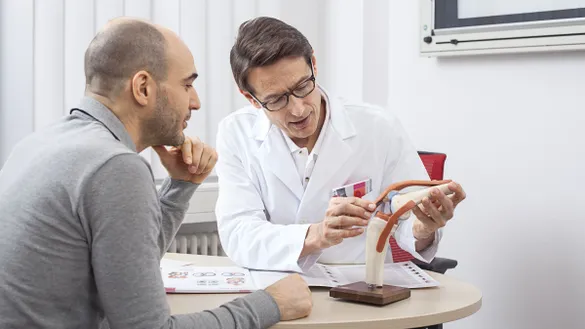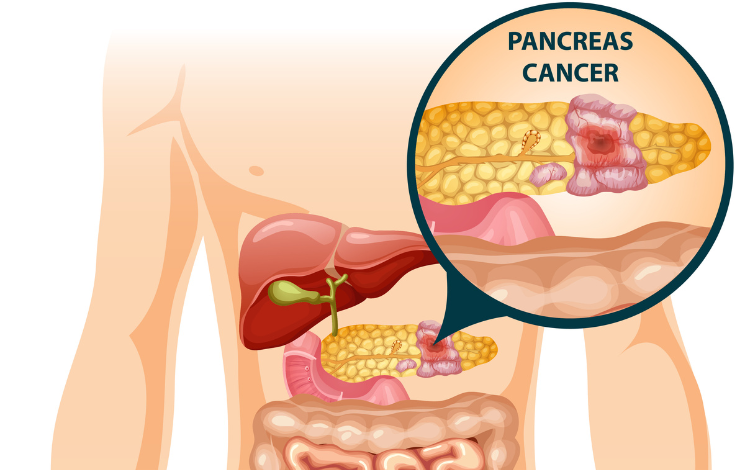How do Pancreatic cancer form?
Pancreatic cancer arises from the abnormal growth of cells in the pancreas, a gland vital for digestion and blood sugar control. Genetic mutations, triggered by factors like aging, tobacco use, and family history, disrupt the normal regulation of cell division, allowing cells to evade control mechanisms and multiply uncontrollably. Chronic inflammation, often from conditions like chronic pancreatitis, can also fuel cell changes. As cells accumulate genetic alterations, they form a tumor that may eventually become cancerous. The intricate interplay of genetic, environmental, and lifestyle factors contributes to the complex process through which pancreatic cancer develops. Early detection and understanding risk factors remain essential for managing this challenging disease.
How To Prevent Pancreatic cancer ?
- Avoid Tobacco : Quit smoking and stay away from secondhand smoke, as smoking is a major risk factor.
- Healthy Diet : Consume a diet rich in vegetables, fruits, whole grains, and lean proteins. Limit red meats, processed foods, and sugary items.
- Maintain Healthy Weight : Engage in regular physical activity to maintain a healthy weight, as obesity is linked to higher risk.
- Limit Alcohol : If you drink, do so moderately. Excessive alcohol intake increases the risk of pancreatic cancer.
- Manage Diabetes : If diabetic, effectively manage blood sugar levels through lifestyle and medical guidance.
- Genetic Awareness : Understand your family's medical history and genetic risk factors. Discuss them with your healthcare provider.
- Reduce Chemical Exposure : Minimize exposure to harmful chemicals, especially in occupations with potential carcinogens.
Regular medical check-ups and early detection remain essential.
Causes
- Smoking
- diabetes
- chronic pancreatitis or inflammation of the pancreas
- family history of pancreatic cancer
- certain genetic syndrome
Symptoms
- Abdominal pain that radiates to your back : Loss of appetite or unintended weight loss
- Yellowing of your skin and the whites of your eyes (jaundice)
- Light-colored stools Dark-colored urine
- Itchy skin
- New diagnosis of diabetes or existing diabetes that's becoming more difficult to control
- Blood clots
- Fatigue
Diagnosis
Definitive diagnosis requires a series of imaging scans, blood tests and biopsy—and those tests are typically only done only if you have symptoms.

Doctors

Onco Surgeon
Dr. Manish Sadhwani

Laparoscopic , GI & Colorectal
Dr Ronak Vyas
Treatment
As the least common pancreatic cancer surgery, this procedure is used when tumors extend throughout the pancreas. In a total pancreatectomy, surgeons remove the entire pancreas, spleen, gallbladder, common bile duct and portions of the small intestine and stomach.


